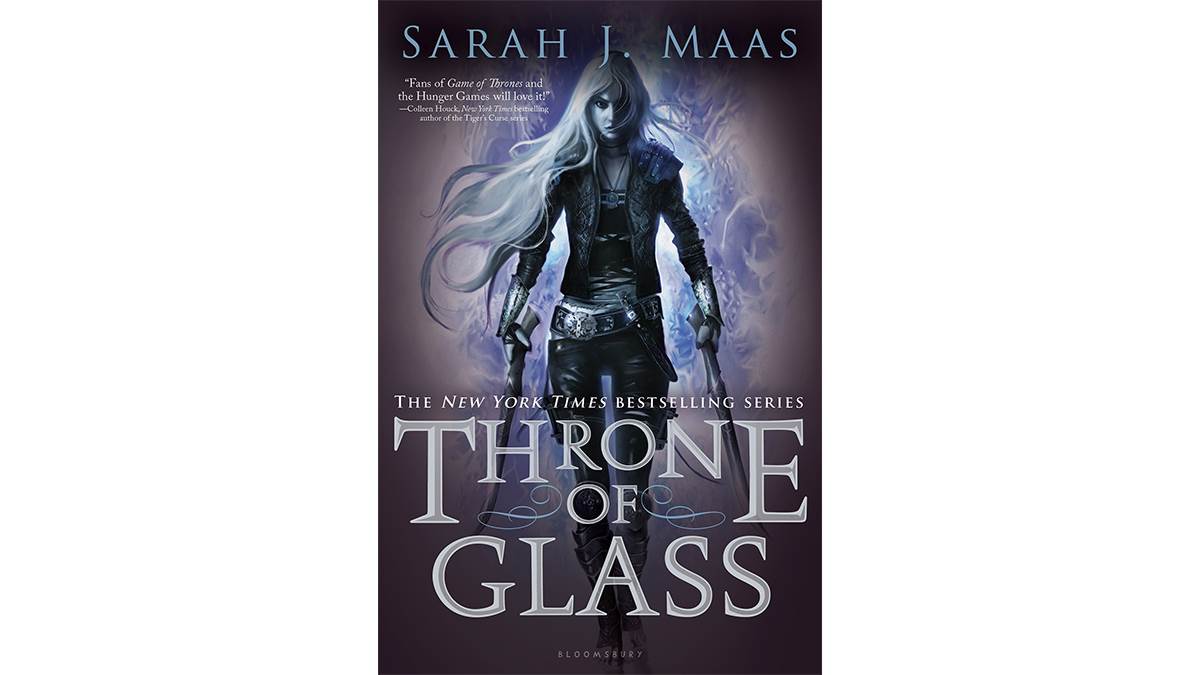Advice to young writers, by Sarah J Maas
Fantasy author Sarah J Maas published her first novel online at the age of just 16.
She has since gained a big online fanbase, and has now published her first novel in print – Throne of Glass. Here, she offers some words of advice to young aspiring authors.

I began writing Throne of Glass when I was 16 - and it became a project that I worked on through high school and college, and several years after that. I decided by the end of high school that I wanted to be a professional writer - that I wanted to publish Throne of Glass. Little did I know just how long it'd take me to reach that goal.
Writing as a teen (and later as a young adult in college) was certainly not an easy thing to do, especially when I had loads of homework and extra-curriculars to juggle. But those years I spent writing as a teen were crucial in my development as a writer. And even though I didn't realise these things at the time, hindsight is 20/20 - and these are my best bits of advice to any young writer:
1. Read. A lot.
This is probably the most obvious bit of advice, but read as much as you can. Read what your professors assign you, but also make time to read for fun. Honestly, school nearly crushed the love of reading right out of me. I didn't get to read the books I was interested in for class, and analyzing them one after another made me forget the sheer joy and entertainment that comes from curling up with a book. So make time to read the books you love, and never be ashamed of them, even if they're considered uncool or unintellectual.
2. Draw your inspiration from everywhere
Go to museums, take art classes, see movies you have no interest in seeing... Take the time to observe people: how they talk, how they move, how they interact. Keep your eyes open wherever you go, because you never know when inspiration will strike.
3. Be open to criticism and don't be afraid to get your writing out there
Take a creative writing class (they're not as scary as you think!), ask a favorite teacher to read your work, or wrangle your friends into reading whatever material you produce. Being able to accept and incorporate criticism is one of the hardest things to do - and one of the most crucial to our professions. Learning to accept it will only help you in the long run - and will help your writing improve. As Lloyd Alexander once wrote (in Taran Wanderer), 'Metal's worthless till it's shaped and tempered.'
4. Pay attention in history class
Okay, this is mostly just related to writing fantasy, but you'd be surprised by how much my history classes have helped out my writing. I frequently kick myself for not paying more attention in high school - and for not taking more history classes in college.
5. Write whenever you can, however you can
I shouldn't say this, but I wrote during my classes (only math and excruciatingly boring seminars, I swear!) I also wrote on weeknights (after homework), weekends, holiday vacations, trips to various parts of the world... No matter what I was doing, no matter where I was, I always made time to write. Not because I felt like it was an obligation or requirement, but because it was something I HAD to do - because my stories were something I HAD to get out of me, had to write down.
People will tell you not to write. Don't listen to them. They will tell you your writing isn't good, and that you shouldn't be writing the kind of stories that are in your heart (believe me, as a fantasy author, I've gotten that a LOT). But keep writing. I only made it to publication because I kept writing - because I wrote whenever and however I could, because I wrote what I loved.
6. Live your life
This is the most important bit of advice I can give you. Go out with your friends. Get in trouble (but not too much). Travel. Meet interesting and diverse people. Live a full life (writing whenever you have some spare time, of course), and enjoy every moment of it. I can't begin to tell you how many of my real life experiences influenced my writing - how a twisted ankle and a bruised knee (the prize of a wild night out with friends on iced-over streets) can become a realistic-sounding injury in your novel. Be curious - be open to anything. But live your life. Because good, brave living means good, brave writing.
